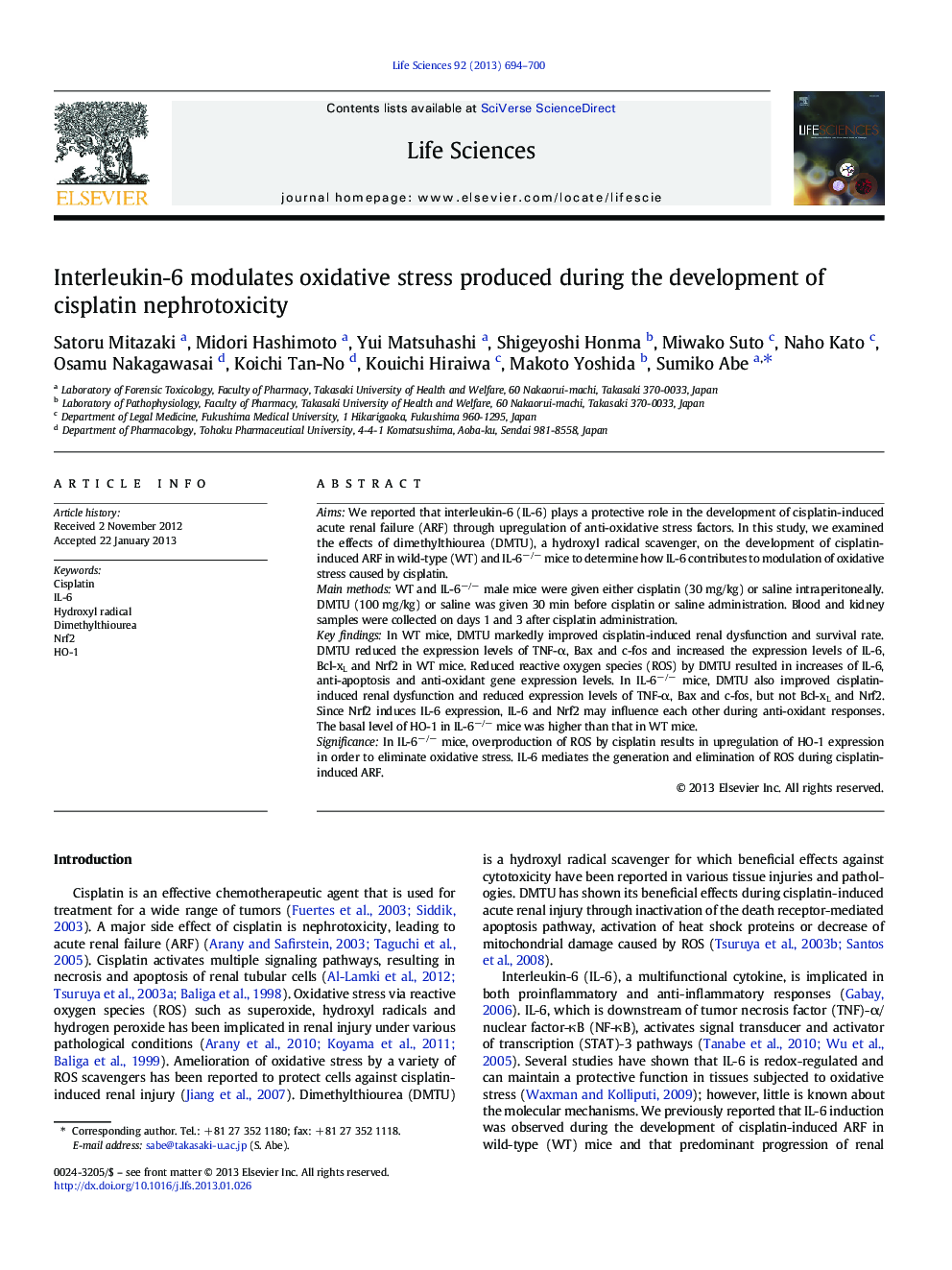| Article ID | Journal | Published Year | Pages | File Type |
|---|---|---|---|---|
| 5842407 | Life Sciences | 2013 | 7 Pages |
AimsWe reported that interleukin-6 (IL-6) plays a protective role in the development of cisplatin-induced acute renal failure (ARF) through upregulation of anti-oxidative stress factors. In this study, we examined the effects of dimethylthiourea (DMTU), a hydroxyl radical scavenger, on the development of cisplatin-induced ARF in wild-type (WT) and IL-6â/â mice to determine how IL-6 contributes to modulation of oxidative stress caused by cisplatin.Main methodsWT and IL-6â/â male mice were given either cisplatin (30 mg/kg) or saline intraperitoneally. DMTU (100 mg/kg) or saline was given 30 min before cisplatin or saline administration. Blood and kidney samples were collected on days 1 and 3 after cisplatin administration.Key findingsIn WT mice, DMTU markedly improved cisplatin-induced renal dysfunction and survival rate. DMTU reduced the expression levels of TNF-α, Bax and c-fos and increased the expression levels of IL-6, Bcl-xL and Nrf2 in WT mice. Reduced reactive oxygen species (ROS) by DMTU resulted in increases of IL-6, anti-apoptosis and anti-oxidant gene expression levels. In IL-6â/â mice, DMTU also improved cisplatin-induced renal dysfunction and reduced expression levels of TNF-α, Bax and c-fos, but not Bcl-xL and Nrf2. Since Nrf2 induces IL-6 expression, IL-6 and Nrf2 may influence each other during anti-oxidant responses. The basal level of HO-1 in IL-6â/â mice was higher than that in WT mice.SignificanceIn IL-6â/â mice, overproduction of ROS by cisplatin results in upregulation of HO-1 expression in order to eliminate oxidative stress. IL-6 mediates the generation and elimination of ROS during cisplatin-induced ARF.
